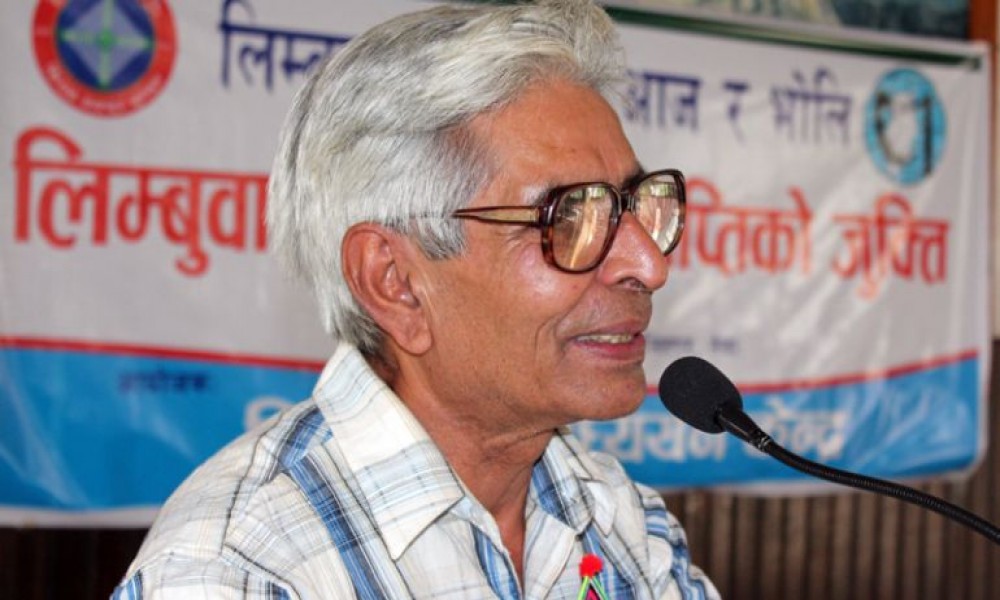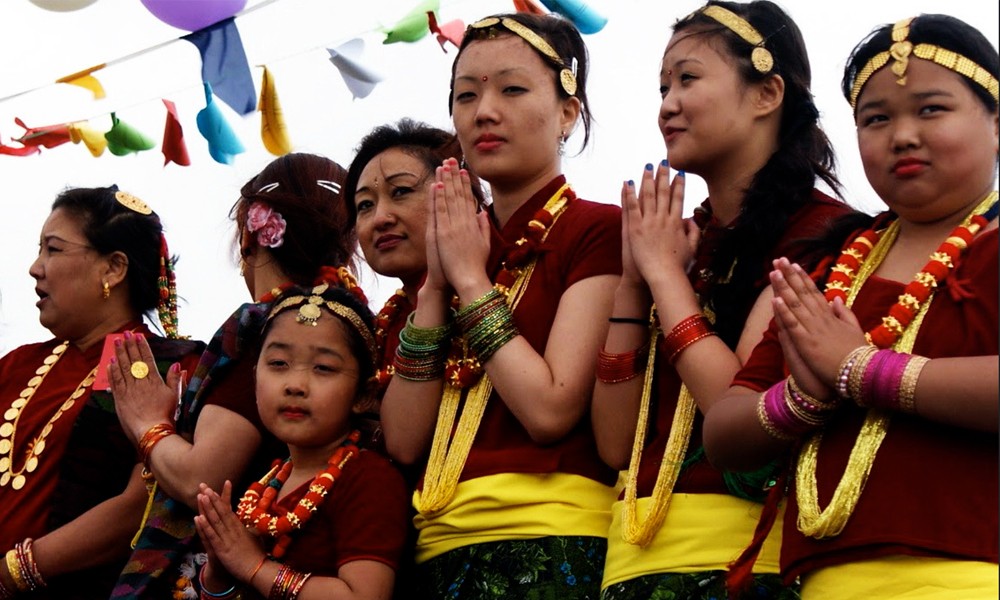Khagendra Sangroula
I am a Panthare. I was born in Subhang village of Panthar (Panchthar). As I grew up in a Limbu-dominated village, I unwittingly developed some of their traits. Like the Limbus, I am straight-forward and fearless. I do not know much about other indigenous communities. But I know the Limbus quite well.
Most of my childhood friends were Limbus. I used to roam around the jungle with Limbu friends carrying a slingshot in my hands to kill birds. I used to steal oranges, pears and bananas with them. I ate a lot of pork and buff in marriage ceremonies of the Limbus. I think this is why part of me is like a Limbu.
Today, I own a house in Chabahil of Kathmandu. I have access to all big media houses. They publish whatever I write. Some readers read and appreciate my articles. Others read and criticize my articles. But they read. I have earned some respect in the society. I get invitations from the Shital Niwas and Baluwatar to attend national ceremonies every year.
But none of my childhood Limbu friends is where I am now. Most of them have died. When I turned 50, my contemporary Limbus looked much older. They had lost their teeth, had wrinkles all over their faces and it looked like they were just waiting to die. I am turning 70 in the next few months. But I still feel young in my heart. I think I look younger than my actual age.
What brought me to Kathmandu? What restricted other Limbu boys to Subhang? The reasons are obvious: the state was ruled by my caste, my mother tongue was the official langue, I could study in my own mother tongue and the teachers were also Bahuns. On the contrary, my Limbu friends could understand and speak Nepali. But they were not comfortable with this language. They had a different mother tongue. I think it made a huge difference.
I came to Kathmandu, studied more and earned a name. My childhood Limbu friends spent their whole life in Panchthar. They did not get the opportunities which I enjoyed. This is the only difference between them and me.
In 2013 BS, a school was established in Subhang. That was the first school of my village. I had 13 other friends in my class. One of them was a Sarki boy. Five others were Limbu boys. The Sarki boy dropped out just a year after he was enrolled. The Limbu boys also could not go beyond fifth or sixth grades. Two of them became Lahures. I do not know what three other Limbu boys did after dropping out.
But I came to Kathmandu, pursued higher education and became a writer. What brought me to Kathmandu? What restricted other Limbu boys to Subhang? The reasons are obvious: the state was ruled by my caste, my mother tongue was the official langue, I could study in my own mother tongue and the teachers were also Bahuns. On the contrary, my Limbu friends could understand and speak Nepali. But they were not comfortable with this language. They had a different mother tongue. I think it made a huge difference.
The Nepali language was a bridge, and I came to Kathmandu by crossing that bridge. My Limbu friends could not cross that bridge.
My father was a Jyotish. He used to read books and narrate stories, which helped the process of my cognitive development. Had I not been able to enjoy all those facilities, I could not have come to Kathmandu. I would have spent my whole life in Subhang. I would have looked 70 before I turned 50.
Identity crisis
Indigenous people are facing an identity crisis in Nepal. They want recognition of their identity. They want the state to recognize their identity.
I have always listened to my conscience. I am not doing any favor to the oppressed communities by speaking out and writing in their support. I believe that people belonging to my caste group have done injustice to them, and they should get their dues.
I am also facing a kind of identity crisis. The Madhesi see me as a Pahade. The Pahade see me as a Madhesi. The indigenous people see me as a Bista (hill Brahmin). The Bistas see me as a pro-indigenous Bahun. They accuse me of being a communalist. My identity crisis stems from the fact that I always advocate for the oppressed communities' agendas. When I supported their agendas of self-determination, self-governance and autonomy, my own caste-group accused me of being a communalist. When I supported the agendas of the Madhesi, my own caste-group accused me of being a secessionist.
But I have always listened to my conscience. I am not doing any favor to the oppressed communities by speaking out and writing in their support. I believe that people belonging to my caste group have done injustice to them, and they should get their dues. Of course, I or my ancestors did not do anything wrong. But the state run by caste group marginalized indigenous people, Madhesi and Janajatis. So, I think I should take some responsibility to right the wrongs.
(This article is based on a speech made by Sangroula during an interaction organized by Limbuwan Study Centre in Lalitpur on 8 August).









